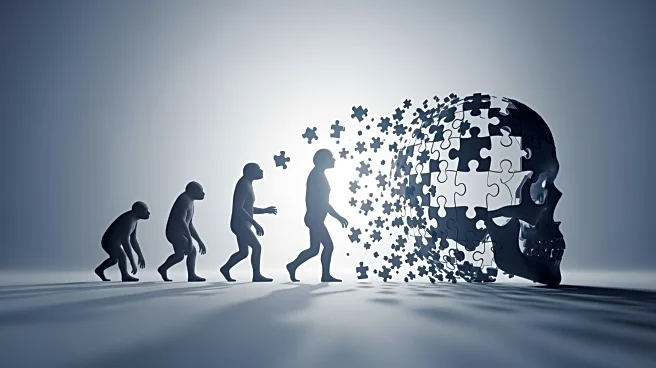What's Happening?
Researchers at UCL have conducted a study revealing that humans evolved large brains and flat faces at a faster rate than other apes. The study, published in Proceedings of the Royal Society B, analyzed
ape skulls and found that human skulls changed more rapidly, suggesting evolutionary advantages. The research involved creating 3D digital models of skulls from various primates, including hominids and hylobatids. The findings indicate that humans developed greater anatomical diversity, with skull changes driven by cognitive and social factors. The study provides insights into the evolutionary pressures that shaped human development.
Why It's Important?
Understanding the rapid evolution of human skulls offers valuable insights into the unique traits that distinguish humans from other apes. The study highlights the importance of cognitive and social factors in human evolution, suggesting that these traits provided significant advantages. This research contributes to the broader understanding of human evolution, informing discussions on how anatomical changes have influenced human behavior and societal development. The findings may impact fields such as anthropology, biology, and psychology, providing a foundation for further exploration of human evolutionary history.
What's Next?
The study opens avenues for further research into the specific evolutionary pressures that influenced human skull development. Researchers may explore the role of social selection in shaping human traits, examining how these factors contributed to the rapid changes observed. The findings could lead to new studies on the relationship between brain size, facial structure, and cognitive abilities, enhancing the understanding of human evolution. As the research progresses, it may inform educational programs and public discussions on human ancestry and development.
Beyond the Headlines
The study raises ethical considerations regarding the interpretation of evolutionary advantages, emphasizing the need for careful analysis of the factors that drove human development. By exploring the social and cognitive aspects of evolution, researchers can better understand the complexities of human history and the implications for modern society. This approach encourages a nuanced view of evolution, considering both biological and cultural influences.









